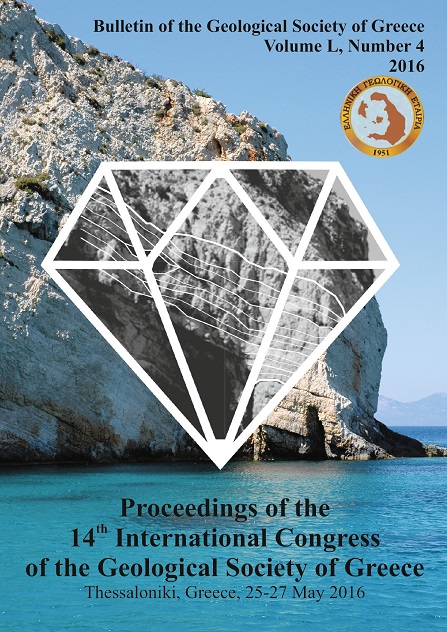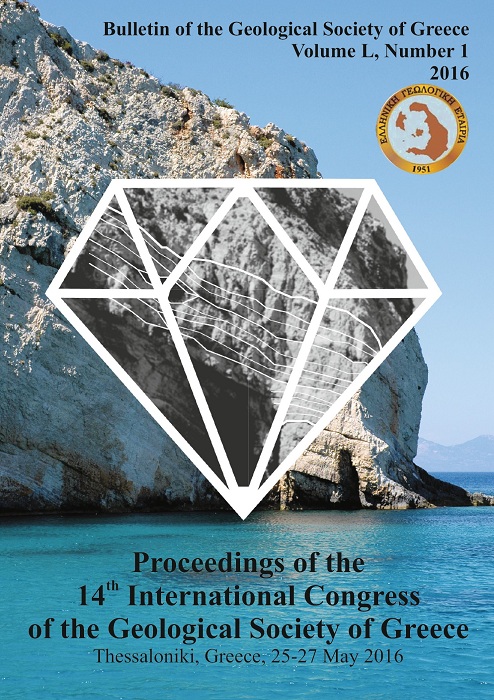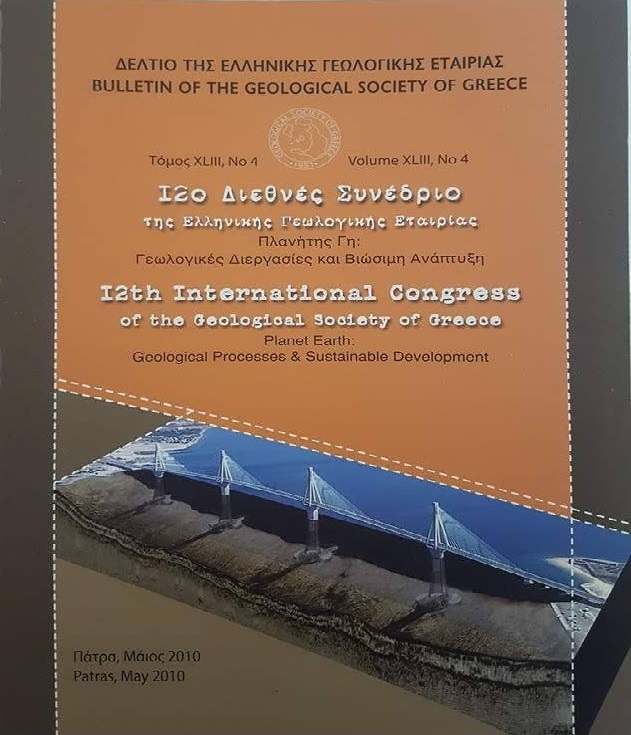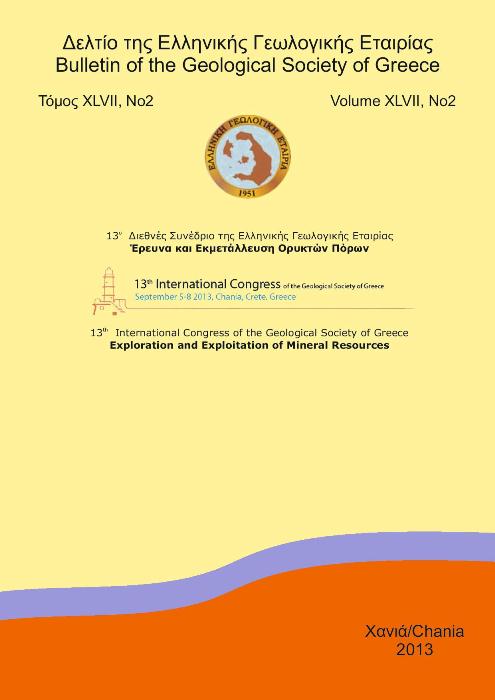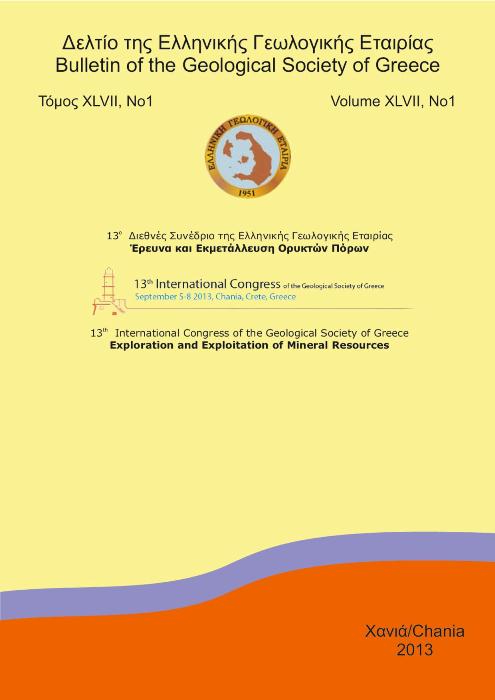FLOOD HAZARD ASSESSMENT AND DELIMITATION OF THE LIKELY FLOOD HAZARD ZONES OF THE UPPER PART IN GALLIKOS RIVER BASIN
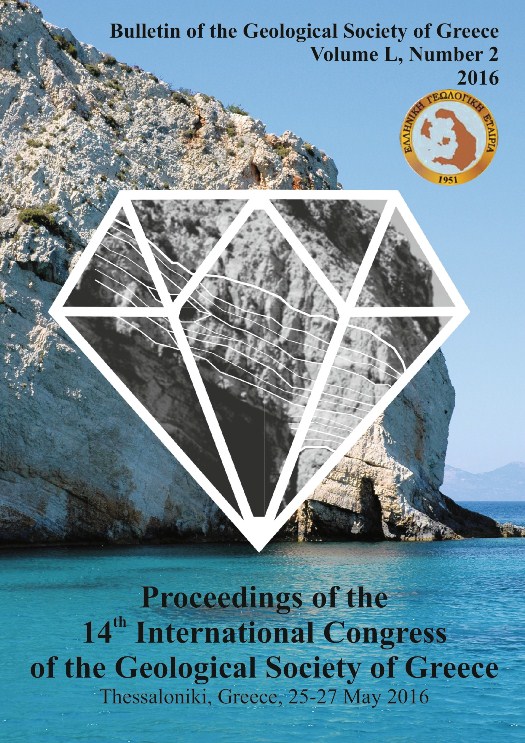
Περίληψη
Οι πλημμύρες αποτελούν μια από τις πιο κοινές φυσικές καταστροφές σε παγκόσμια κλίμακα που μπορούν να απειλήσουν την ανθρώπινη ζωή και τις υποδομές. Στόχος της παρούσας εργασίας είναι ο προσδιορισμός και η εκτίμηση των πιθανά πλημμυρισμένων εκτάσεων για διαφορετικές εντάσεις βροχόπτωσης στον άνω ρού της λεκάνης απορροής του Γαλλικού ποταμού (κεντρικής Μακεδονίας), σύμφωνα με την Ευρωπαϊκή οδηγία 2007/60. Για την ανάλυση της μετεωρολογικής πληροφορίας και τη σχεδίαση χαρτών πλημμύρας, χρησιμοποιήθηκαν τα ελεύθερα λογισμικά HYDROGNOMON, HEC-HMS και HEC-RAS σε συνδυασμό με το λογισμικό ESRI GIS. Τα αποτελέσματα απεικονίζονται σε χάρτες πλημμυρικής κατάκλισης, οριοθετώντας και ποσοτικο- ποιώντας έτσι το μέγεθος του προβλήματος στην περιοχή. Η δημιουργία μοντέλων πρόβλεψης με τα παραπάνω λογισμικά αποτελούν ένα σημαντικό και χρήσιμο εργαλείο στον σχεδιασμό ενός αποτελεσματικού πλαισίου διαχείρισης των πλημμυρών.
Λεπτομέρειες άρθρου
- Πώς να δημιουργήσετε Αναφορές
-
Tsitroulis, I., Voudouris, K., Vasileiou, A., Mattas, C., Sapountzis Μ., & Maris, F. (2016). FLOOD HAZARD ASSESSMENT AND DELIMITATION OF THE LIKELY FLOOD HAZARD ZONES OF THE UPPER PART IN GALLIKOS RIVER BASIN. Δελτίο της Ελληνικής Γεωλογικής Εταιρείας, 50(2), 995–1005. https://doi.org/10.12681/bgsg.11804
- Ενότητα
- Engineering Geology, Hydrogeology, Urban Geology

Αυτή η εργασία είναι αδειοδοτημένη υπό το CC Αναφορά Δημιουργού – Μη Εμπορική Χρήση 4.0.
Οι συγγραφείς θα πρέπει να είναι σύμφωνοι με τα παρακάτω: Οι συγγραφείς των άρθρων που δημοσιεύονται στο περιοδικό διατηρούν τα δικαιώματα πνευματικής ιδιοκτησίας επί των άρθρων τους, δίνοντας στο περιοδικό το δικαίωμα της πρώτης δημοσίευσης. Άρθρα που δημοσιεύονται στο περιοδικό διατίθενται με άδεια Creative Commons 4.0 Non Commercial και σύμφωνα με την οποία μπορούν να χρησιμοποιούνται ελεύθερα, με αναφορά στο/στη συγγραφέα και στην πρώτη δημοσίευση για μη κερδοσκοπικούς σκοπούς. Οι συγγραφείς μπορούν να: Μοιραστούν — αντιγράψουν και αναδιανέμουν το υλικό με κάθε μέσο και τρόπο, Προσαρμόσουν — αναμείξουν, τροποποιήσουν και δημιουργήσουν πάνω στο υλικό.



